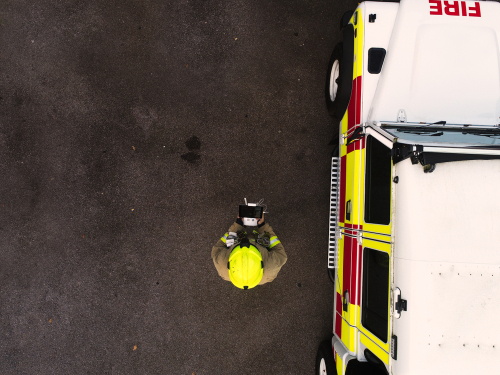
To improve first responder operations and get them the best technology, the Department of Homeland Security (DHS) Science and Technology Directorate (S&T) hosted the Urban Operational Experimentation (OpEx) 2022 from July 18-22, 2022.
At this gathering, S&T and its National Urban Security Technology Laboratory (NUSTL) gathered new and emerging technology solutions for first responders to evaluate in realistic, urban settings in the New York Metropolitan area. Federal, state, and local first responder agencies participated in the tests, investigating seven technologies: handheld sensors, unmanned aircraft systems (UAS), AI-enabled gun detection, incident management and situational awareness platforms, deployable communications, and deployable robotics.
“Operating environments and emergency response capability needs are always evolving, and that makes innovation so important—for today, tomorrow, next year, and beyond,” Kathryn Coulter Mitchell, Senior Official Performing the Duties of the Under Secretary for Science and Technology, said. “First responders have to tackle evolving threats in their day-to-day operations and during larger-scale emergency incidents. Urban OpEx paves the way for innovation because we’re putting technology developers and first responders in the same room to understand what they need from one another.”
These technologies were being eyed by more than 150 participants for use in urban search and rescue, post-disaster assessments, chemical detection at large events, anomaly and threat detection, perimeter surveillance, inspections of critical infrastructure, transportation of medical necessities, and communication in remote and hard-hit environments. Details on the results should follow in a series of technology reports from DHS later this year, which the agency hopes will guide other government offices in future investment decisions.
“First responders operate under truly unique and challenging conditions. Understanding how new technologies might affect their operations, if they will add value or create distractions can be a challenge,” Bhargav Patel, NUSTL’s senior technologist, said. “Urban OpEx is an attempt to address this challenge by creating structured experiments contextualized around realistic scenarios.”




